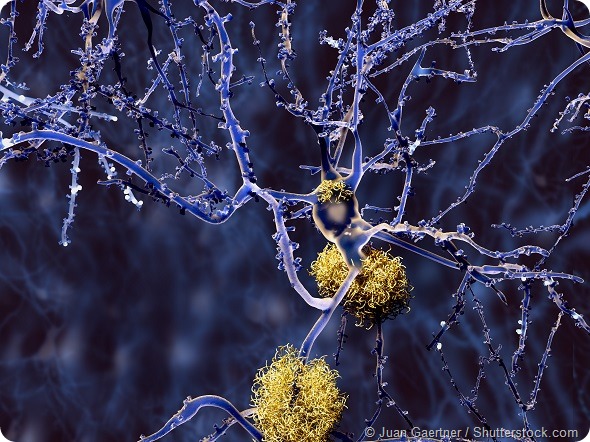A new study has shown that A-beta (Aβ), the protein that forms β-amyloid plaques in Alzheimer’s disease, is a normal part of the immune system - raising questions about the role infection plays in Alzheimer’s disease and whether current treatment strategies should be changed.

The study, which was published in Science Translational Medicine, suggests that Aβ acts as a natural antibiotic, protecting against infections in mice, roundworms and cultured human neuronal cells. The generation of Aβ appeared to entrap invading germs in a degradation-resistant protein matrix.
Aβ was previously thought to be intrinsically pathological, but our findings suggest it is actually designed to protect the brain,"
“Because of Aβ's role as part of the innate immune system, researchers may need to more carefully consider infection as a possible environmental factor leading to the development of Alzheimer's."
Robert Moir, co-corresponding author, Genetics and Aging Research Unit, MIND.
Researchers are now wondering whether Alzheimer’s develops when the brain responds as if it is under attack by pathogens and forms amyloid plaques as a protective mechanism. Further research is needed to determine whether this response occurs in the case of actual infection or perceived infection.
The findings have implications for the therapies that are currently being developed, which are largely based on the assumption that Aβ is pathological.
Moir says that if the results are validated, the “data also warrant the need for caution with therapies aimed at totally removing beta-amyloid plaques. Amyloid-based therapies aimed at dialing down but not wiping out beta-amyloid in the brain might be a better strategy."
President of the Cure Alzheimer’s Fund, Timothy Armour, says the research offers a major paradigm shift when it comes to Aβ and the important role it plays in the immune system.
"Not only do these findings raise questions about the potential causes of Alzheimer's, but they generate new avenues of inquiry into the therapies that may best target the disease," concludes Armour.